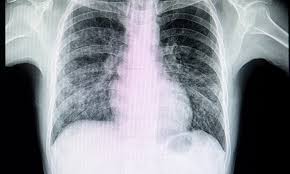This service or treatment is generally covered by most health insurance policies. You are responsible for checking your insurance policy cover, and you may need a referral letter. Check which insurance companies are covered.
Private Chest X-Ray
The chest x-ray is one of the most common tests requested in patients with either suspected or established lung diseases.

Why has my doctor requested a chest x-ray?
The chest x-ray is just one of the investigations needed to explain the symptoms you have reported. The chest x-ray is an ‘imaging’ test which allows doctors to look at the structures in the chest including the lungs and heart. The information provided by the chest x-ray, when taken together with the results of other tests, may allow your doctor to make a diagnosis and, so, provide the correct treatment. If you have a known diagnosis or disease, a chest x-ray may be requested to monitor progress. |
Will I be exposed to radiation and, if so, why can’t I have another test?
Yes. Unlike magnetic resonance imaging (MRI) and ultrasound (US), chest x-ray and computed tomography (CT), both rely on ionising radiation. However, the radiation dose from a single chest x-ray is very low. It is also worth remembering that we are all exposed, each day, to radiation from our surroundings so the radiation dose from a chest x-ray should be considered in context. It is true that MRI and US are tests that do not use ionising radiation. However, the role of these tests in imaging the lungs is generally limited. Doctors request different imaging tests depending on the organ or organs concerned and the question(s) that need to be answered. For reasons related to the physics of MRI and US and, in contrast with, say, the brain, heart and joints, MRI and US are not of great value for imaging of lung diseases. |
Paediatrics
We are able to offer Chest X-ray appointments to referred paediatric patients aged 12-18. For full information on our paediatrics service, please visit our main Paediatrics page.




